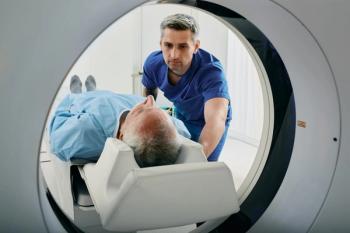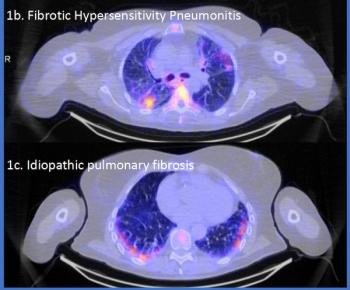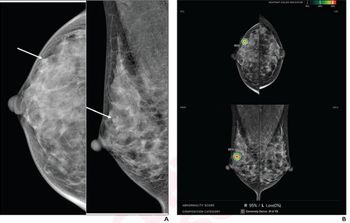
Avoid MRI Burns with Non-Metal Containing Face Masks, FDA Says
Examine a patient’s face mask prior to scanning as nose clips, headband staples, or other components can contain metal, potentially leading to facial burns during MRI scans.
When imaging a patient in an MRI during the COVID-19 pandemic, be sure he or she wears a face mask – but, also check to ensure their mask contains no metal or metal particles, warns the U.S. Food & Drug Administration (FDA).
In a safety communication issued Monday, the FDA alerted the imaging community that facial burns are possible in patients who wear metal-containing masks inside the MRI scanner. This advisory was prompted by a report to the agency of a patient experiencing burns consistent with the shape of a facial mask during a scan of the neck in a 3T MRI scanner.
Currently, facial masks are recommended to slow the spread of the SARS-CoV-2 virus, but those masks frequently contain metal nose clips or wires, as well as nanoparticles or antimicrobial particles that are coated with metal, typically silver or copper. Any metal content can get hot enough to burn a patient during an MRI.
Related Content:
Patients are still advised to wear a mask during an MRI study, but to avoid these problems, the FDA recommended healthcare providers should screen all patients, checking and confirming that his or her face mask contains no metal before beginning the exam. If it is not possible to unequivocally determine that a mask contains no metal, patients should be given an alternative, non-metal containing mask.
Any confirmed or suspected burn event should be reported to the FDA, agency officials said, in an on-going attempt to improve MRI-related patient safety. Submit reports vis the FDA
For more coverage based on industry expert insights and research, subscribe to the Diagnostic Imaging e-Newsletter
Newsletter
Stay at the forefront of radiology with the Diagnostic Imaging newsletter, delivering the latest news, clinical insights, and imaging advancements for today’s radiologists.















